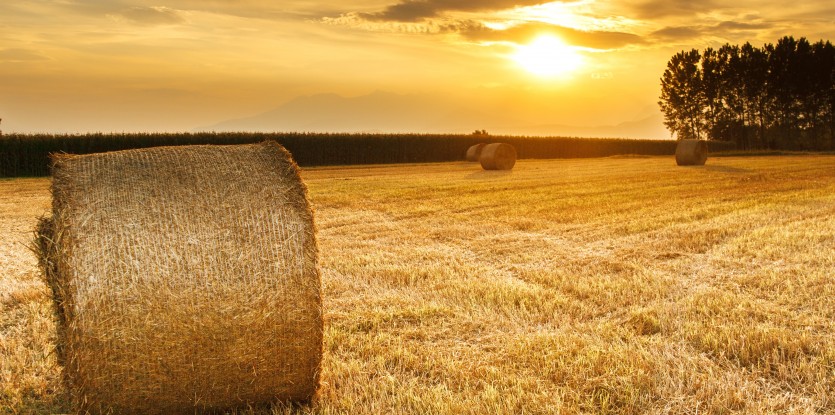Keep the month of aviv (spring), and observe [in it] a Passover to G-d
Deuteronomy 16:1
I will sow the house of Israel with the seed of man and the seed of beast
Jeremiah 2:26
The Jewish calendar is closely attuned to the agricultural seasons. Passover must coincide with the season of aviv, which is broadly defined as “spring” but specifically means the season of the ripening of barley. Shavuot is called “the reaping festival”1 and coincides with the reaping of the staple crop, wheat. Sukkot is the “harvest festival,” celebrated as the grain, which has been drying in the field all summer, is brought into storage. And then there is Tu B’Shvat, the “New Year for Trees,” observed as the first tree-blossoms emerge from the winter slumber. Indeed, our calendar goes to great lengths to reconcile its lunar-based months with the solar-based seasons.
Our forefathers, celebrating these festivals in the Holy Land thirty centuries ago, were primarily an agrarian people. Still, even then there was Levy, the tribe of priests, Shimon, a tribe of schoolteachers, the scholars of Issachar, and the seafaring merchants of Zebulun. Today, a very small percentage of us work the land. But Torah, G-d’s blueprint for creation, obviously transcends differences of time and cultural circumstance and is deeply relevant to all generations and all societies of history. So what does all this mean to those of us who never planted a seed or gathered a harvest?
But the very experience of life is agrarian. The soul’s descent into physical life, like the planting of a seed, is an investment—a precarious investment at that, given the fact that one’s capital erodes significantly before turning a profit. The farmer who sows his field knows that he is taking perfectly good grain–grain with which he could feed his family–and casting it into the soil, where it will soon disintegrate. But he also knows that the rotting seed will stimulate the earth to yield many times the grain he “squandered.”
The soul, too, is buried in earth—cast into a body of clay with material drives and desires. It is worse for the wear: its spiritual senses are dulled, its moral compass compromised. But the soul’s interment in earth and earthiness stimulates it, and the body and the physical environment in which it was invested, to yield their tremendous potential—a potential far greater than the soul itself could achieve.
The human “farm” includes many and varied crops. On Passover we celebrate the ripening of barley, a grain that serves primarily as animal feed. In human terms, this represents the development of the animalistic nature with which the soul has been saddled upon its descent into the physical state, but whose passion and intensity surpass anything the spiritual soul can muster for its own spiritual ideals. Properly cultivated and directed, the beast in man thus proves a priceless resource in the soul’s quest to deepen and intensify its bond with its Creator.
On Shavout, wheat, the staple of the human diet, is harvested. This represents the fruition of another dimension to the sowing of the soul: the development of the “human” element in man, the soul’s own spiritual potential. The challenge of converting the earth’s resources into nourishing grain provokes deep-seated powers of the soul which it would otherwise never have realized, just as a kernel of grain would never have been revealed to be more than a single kernel of grain had it not been sown in the earth.
And so it is with the other agricultural events on the Jewish calendar, such as the “internalization” of the harvest on Sukkot, or the element of “delight” in life represented by Tu B’Shvat’s fruit blossoms: each embodies another aspect of the soul’s journey as seed, tender shoot and glorious harvest.
Based on an address by the Rebbe, Shvat 15, 5731 (February 10, 1971) 2







